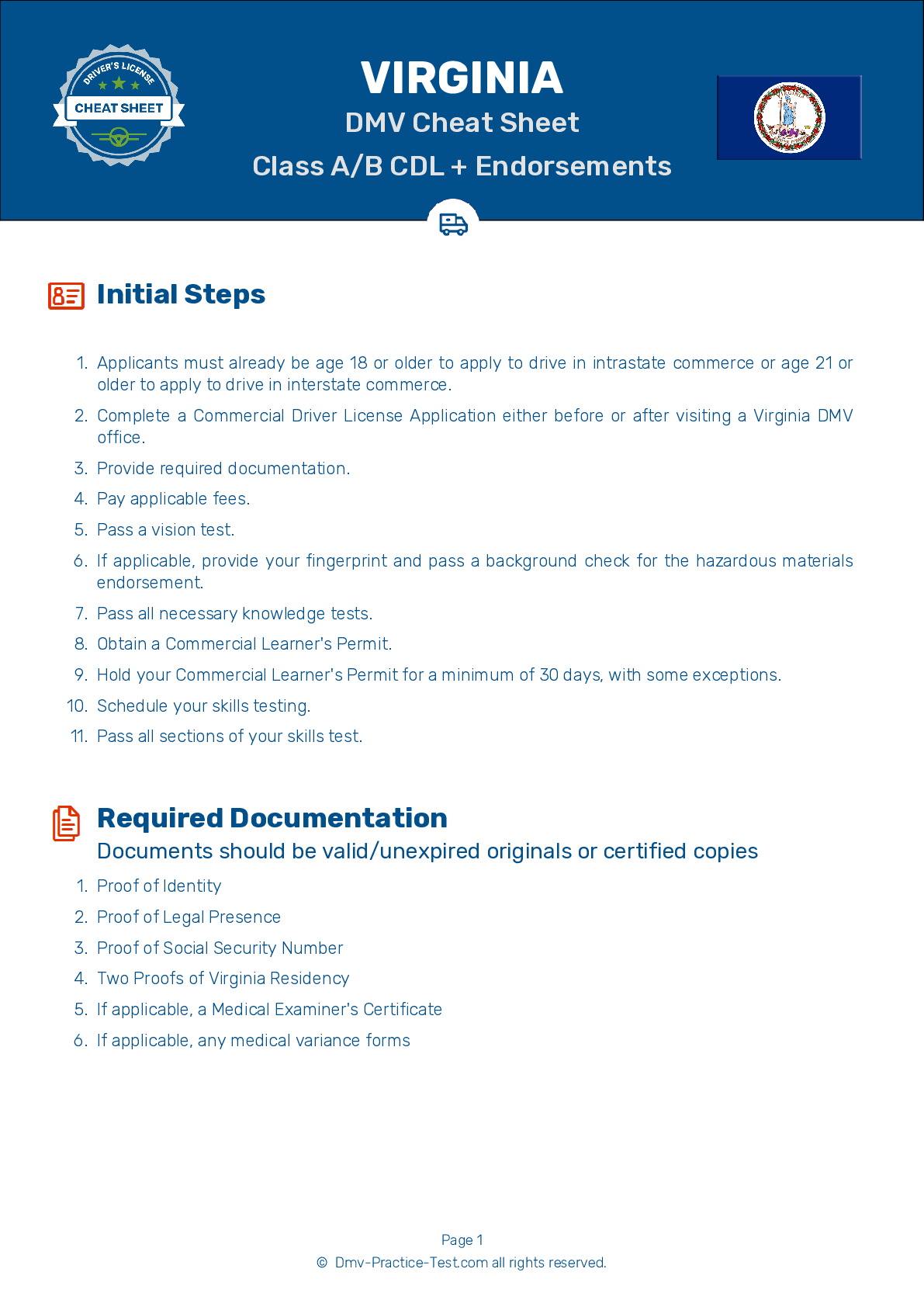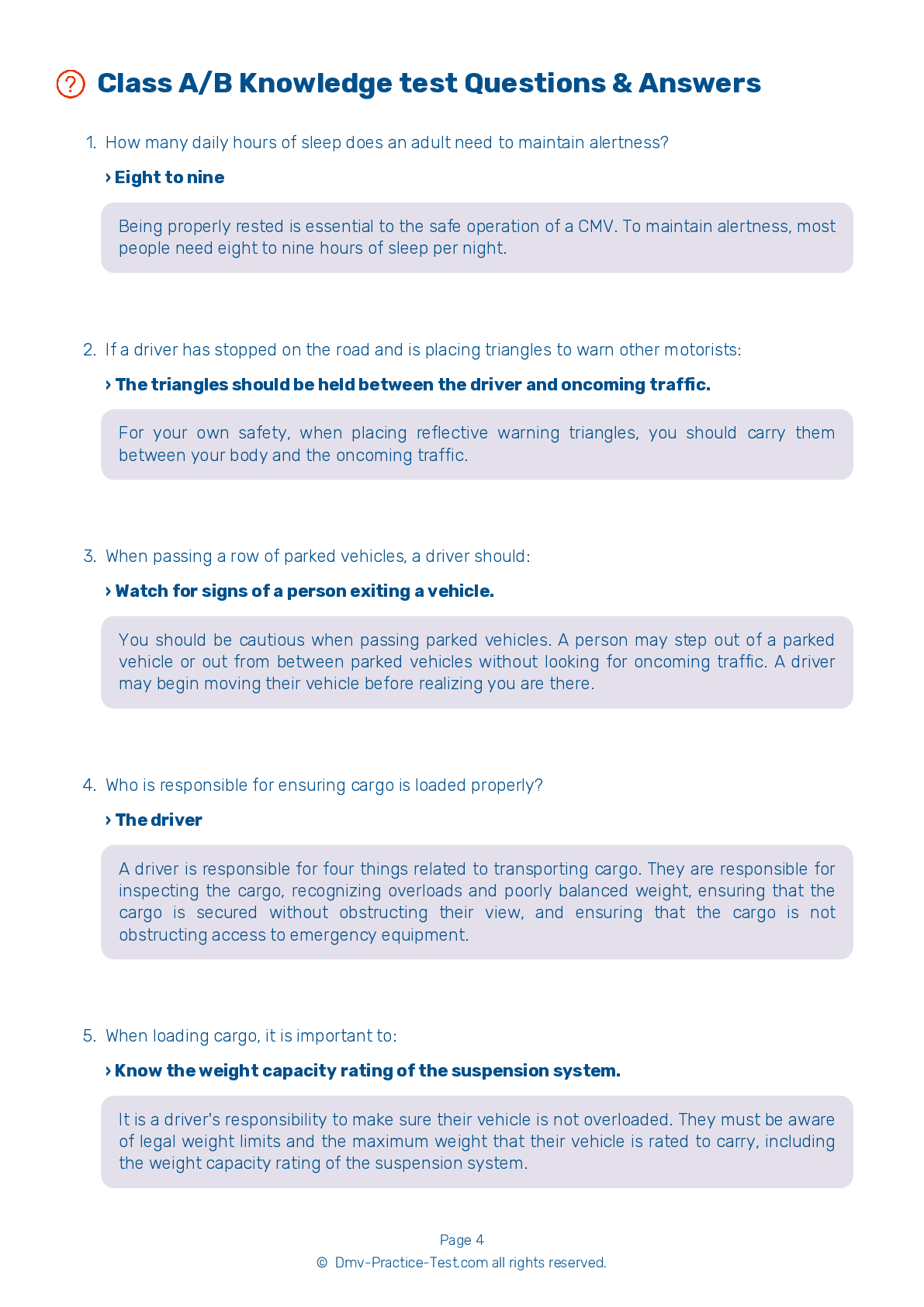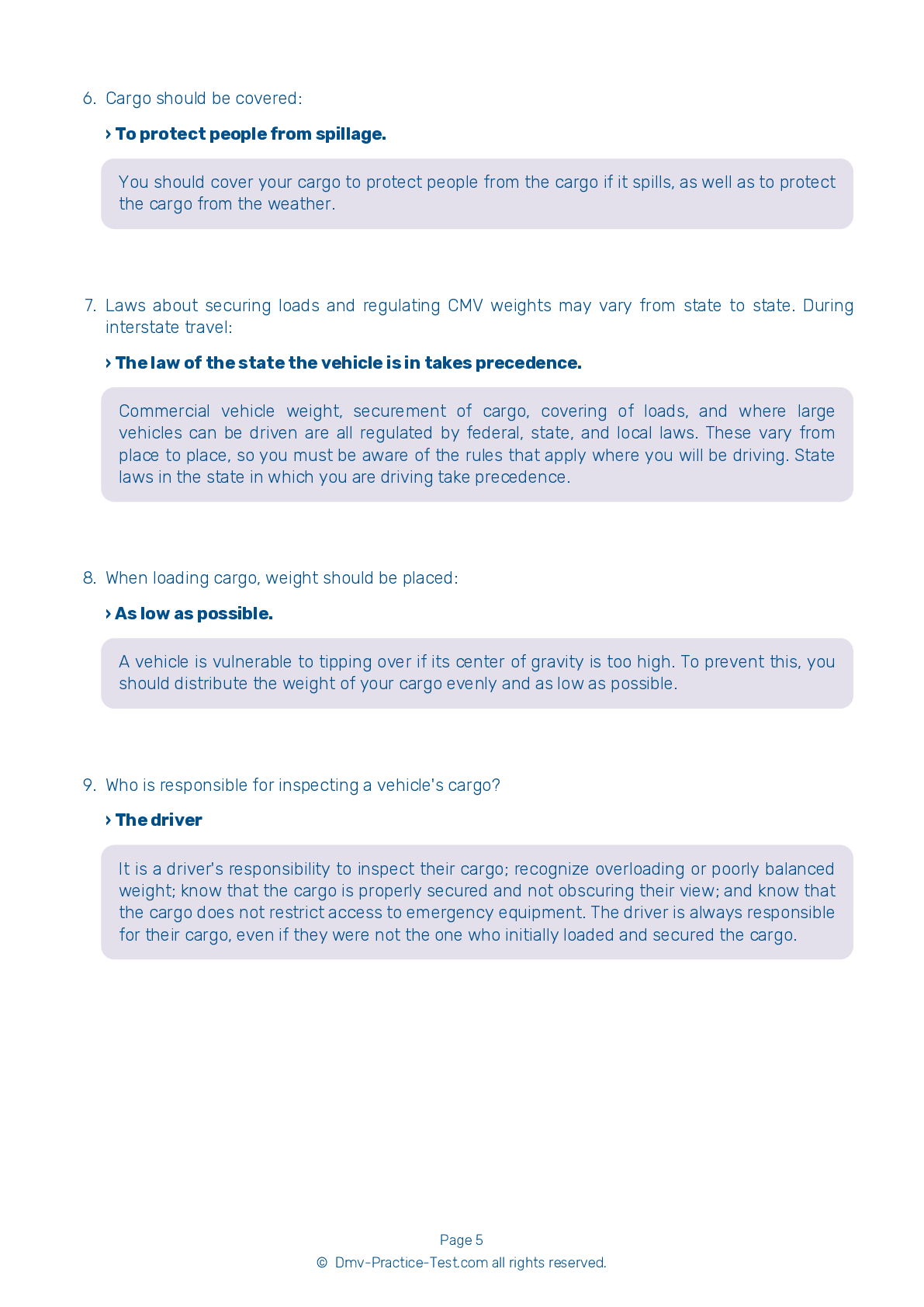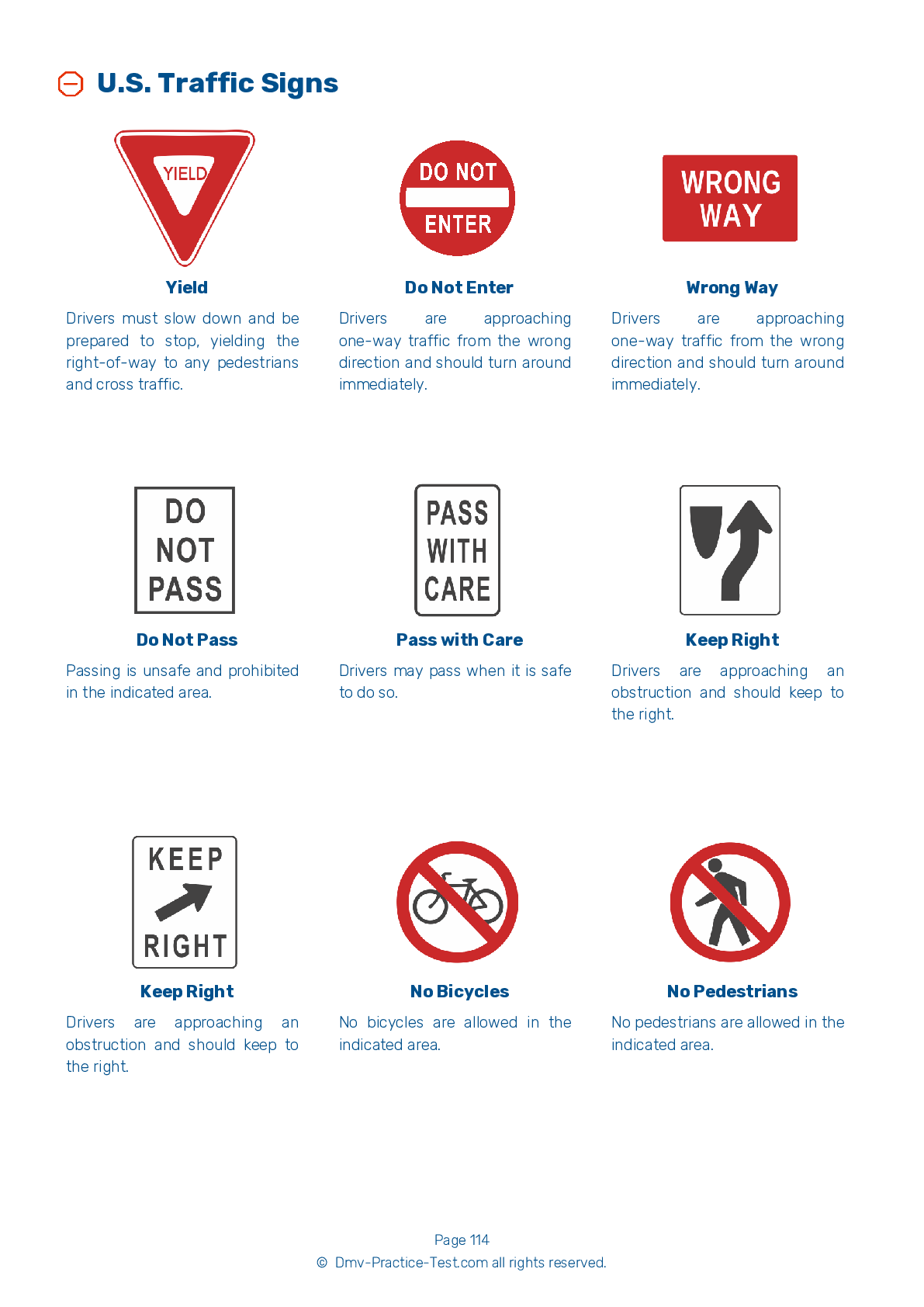Hazmat Test | Virginia 2026 #1 Page 4 of 5
On our website, we provide FREE practice - CDL hazmat test online! The official exam test consists of several obligatory parts, with all of them checking your knowledge of different blocks of road rules. If you need to obtain a VA CDL hazmat endorsement in 2026, practice as much as possible. Free sample tests published on our website will help you check and improve your knowledge and boost your grades. Please bear in mind that Virginia requirements for issuing a hazmat endorsement for CDL may vary from those established in other states.
19 . Placards showing the type of hazardous materials in a vehicle are usually shaped like what?
Hazardous materials warning placards are diamond-shaped.
20 . When applying for an original or renewed HazMat endorsement, you must undergo a background check through which agency?
When applying for an original or renewed HazMat endorsement, you must undergo a federal security threat assessment done by the Transportation Security Administration (TSA).
21 . While driving, shipping papers should be:
While hazardous materials are being transported, shipping papers should either be kept in a pouch in the driver's side door or in another location where the driver is able to easily reach them while their seat belt is fastened. The papers must be clearly visible to anyone who is entering the cab.
22 . How many identical placards must be placed on a vehicle?
A placarded vehicle must have at least four identical placards: one on the front, one on the rear, and one on each side of the vehicle.
23 . Class 1, Class 2.1, and Class 3 materials should not be placed in a trailer with:
The use of cargo heaters is not always permitted. When transporting materials that are categorized as Class 1 (Explosives), Class 2.1 (Flammable Gases), or Class 3 (Flammable Liquids), the use of heaters in the same space is generally prohibited.
24 . When a shipper packages hazardous materials, they certify:
A shipper of hazardous materials must certify on the shipping paper that the shipment has been prepared in accordance with the rules.
See the exact questions that will be on the 2026 Virginia DMV exam.
99.2% of people who use the cheat sheet pass the FIRST TIME
Lillian MCcranie explains how our CDL study guide was helpful in passing the exam and recommends it to everyone.
Cameron tells us how he purchased the CDL exam, and found it to be a useful tool which helped him pass the exam and find a job.



